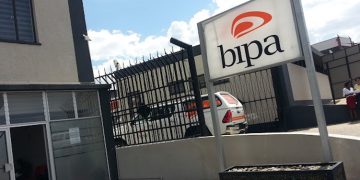
Namibia is expected to rake in N$7.3 billion (US$502.1 million) in Foreign Direct Investment (FDI) this year, up from N$5.7 billion (US$394.1 million) recorded in 2021, driven by increased investor confidence, higher commodity prices, and exploitable opportunities in the country’s renewable energy sector, analysts have said.
PSG Namibia Research Analyst, Shelly Louw, said higher commodity prices have increased mining companies’ interest in expanding operations and investing in greenfield projects in Namibia in the short term.
“The nascent domestic oil and green hydrogen industries could provide even larger boosts to FDI in the medium to long term. Higher petroleum prices and the geopolitical fallout of the Russia Ukraine war are accelerating the race towards alternative fuels such as green hydrogen,” she said.
The PSG Namibia Analyst forecasts global commodity prices to peak in the second quarter of 2022 and then retract from the current record highs as supply chain constraints ease and global demand moderates, development which makes it attractive for mining companies.
“We project that non fuel commodity prices will stabilize at above 2013 levels in mid-2025 Hence, we expect prices will remain attractive to mining companies even in the event of a market correction Since the recovery in global mineral prices, miners have expressed interest in bringing decommissioned copper and uranium mines back to life and are also exploring opportunities in so called battery minerals (such as lithium and graphite) as well as oil and natural gas,” Louw said.
She added that Namibia last year recorded the strongest influx of FDI since 2015 of N$5.7 billion compared with net outflows of N$3 billion (US$207.5 million) in 2020.
“Positive FDI momentum was maintained in the final quarter of last year as net FDI (inward FDI minus outward FDI) recorded an inflow of N$1.35 billion (US$93 million), compared with a slightly higher inflow of N$1.38 billion (US$95 million) during the previous quarter,” Louw said.
“This followed a slump in foreign investment that started in 2016 due to downswings in global commodity prices and domestic economic growth as well as a number of policy goals from the Namibian government.”
According to the Bank of Namibia’s latest Annual Report, the increase in capital inflows last year was supported by the increased uptake in debt by corporates in the mining sector.
“The central bank notes that profits retained by foreign direct investment enterprises in the mining and financial services sectors also contributed to FDI inflows,” she said.
Almost 62% of Namibia’s FDI stock is in mining quarrying, while nearly 23% is in financial services and about 5% is in manufacturing.
The countries with the largest shares of the FDI stock are China 42% South Africa 30% and Mauritius 7%.












